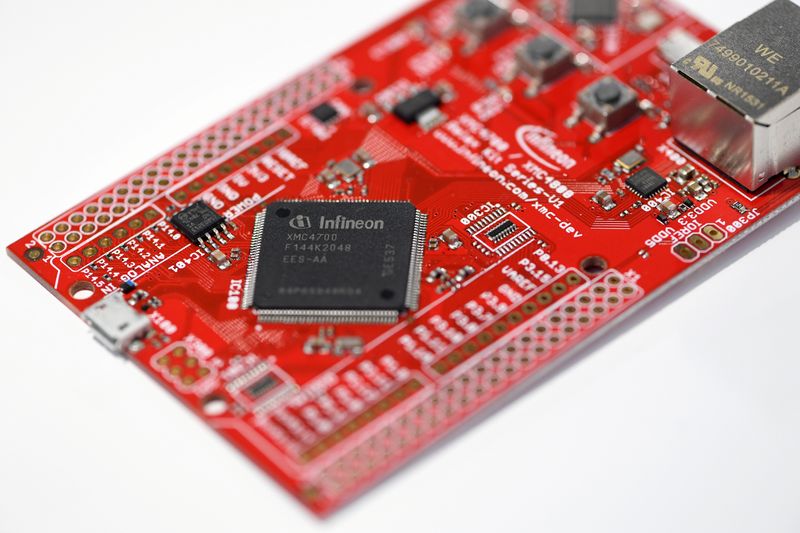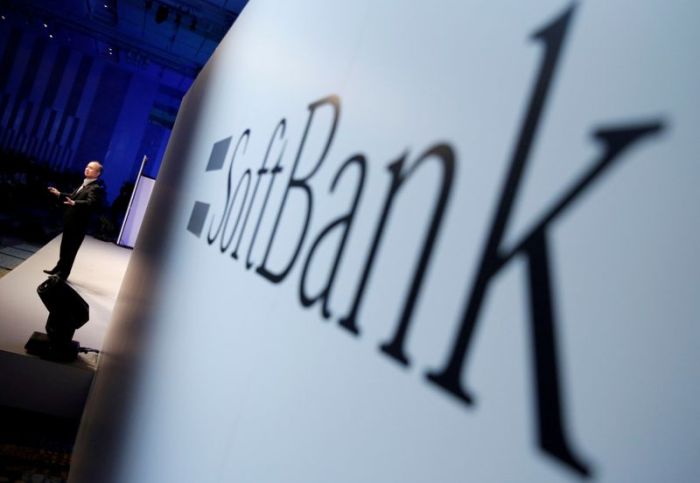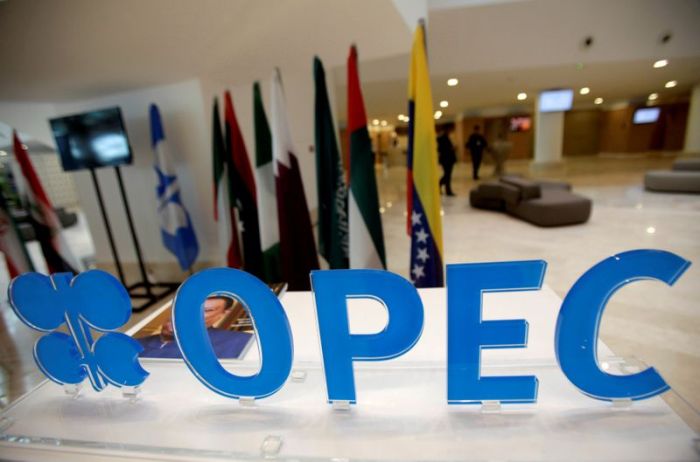BERLIN (Reuters) – German chipmaker Infineon forecast double-digit revenue growth for the year ahead, sending its shares higher even as management proposed to trim the dividend to account for the blow inflicted by the coronavirus pandemic.
The Munich-based power chip specialist ditched its financial guidance in March as the coronavirus hit – just before its $10 billion acquisition of U.S. Cypress Technologies closed – but has since been lifted by an auto industry recovery.
“The sequential increase in revenue is very significant and confirms that the June quarter had marked the low point,” CEO Reinhard Ploss said of the automotive segment that accounts for two-fifths of Infineon’s revenue.
Taking into account the impact of the pandemic and ongoing risks as countries battle a second wave of infections, management proposed a 5-cent cut to its dividend to 22 euro cents for the fiscal year ended Sept. 30.
Investors shrugged off the cut, focusing instead on the sales outlook, sending Infineon shares up 3.1%, outpacing a wider German market lifted by Joe Biden’s victory in the U.S. presidential election.
AUTOMOTIVE DRIVER
Infineon forecast flat sales in the first quarter of its new financial year – instead of showing the usual seasonal drop – setting up the company for projected growth of 22.6% in sales to 10.5 billion euros ($12.5 billion) in fiscal 2021.
Citi analyst Amit Harchandani estimated that implied underlying top-line growth of 10-11%, after accounting for the impact of consolidating Cypress.
Even though global light vehicle sales are forecast by IHS Markit to fall by 6 million to 83 million units next year, growth in electric and hybrid vehicles will play to Infineon’s strengths, said Ploss.
More than half of Infineon’s top-line growth would come from the automotive sector next year, he added, while consolidating Cypress would help expand segment margin – management’s preferred measure of the operating profitability of its business units – to a forecast 16.5% from 13.7%.
That outlook was more or less in line with a poll of analysts by Vara Research, while results for the year just ended were also close to analyst estimates and the company’s own reinstated guidance.
(Reporting by Douglas Busvine; Editing by Carmel Crimmins and Mark Potter)
























